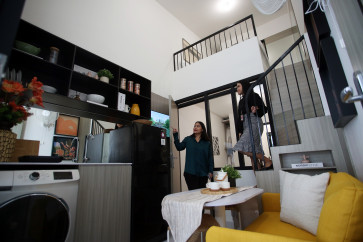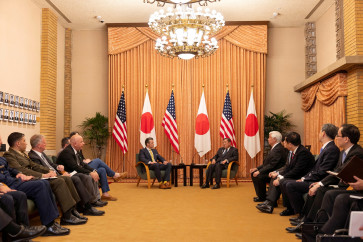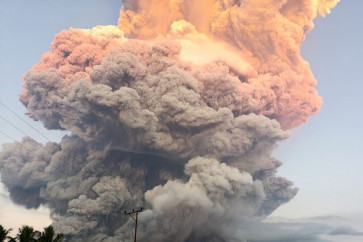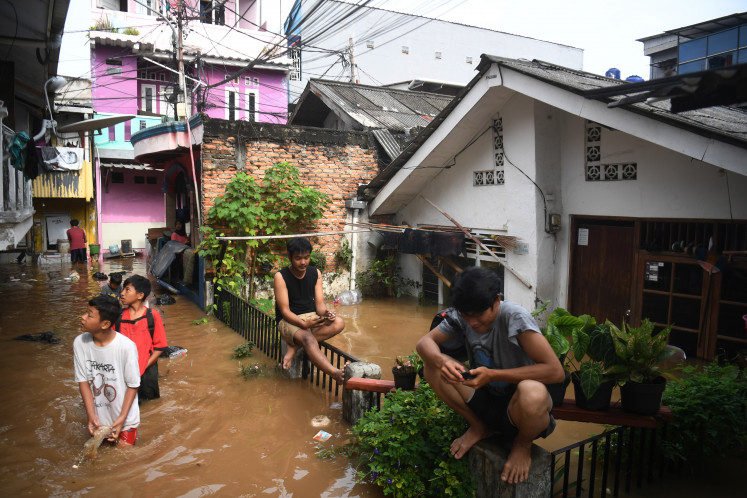Popular Reads
Top Results
Can't find what you're looking for?
View all search resultsPopular Reads
Top Results
Can't find what you're looking for?
View all search resultsEagle High Plantations to build E. Kalimantan factory
PT Eagle High Plantations, a plantation company belonging to conglomerate Rajawali Corp
Change text size
Gift Premium Articles
to Anyone

P
T Eagle High Plantations, a plantation company belonging to conglomerate Rajawali Corp., is set to build a new factory in East Kalimantan in the fourth quarter of the year.
Eagle High Plantations finance and accounting director Henderi Djunaidi said the factory would have a processing capacity of 60 tons per hour. The factory would also be equipped with a dormitory for employees and a bulking station with a capacity of 4,000 metric tons.
“In our estimations, the factory, including the dormitory, will need around Rp 290 billion [US$18.72 million] of investment, while the bulking station around Rp 50 billion,” he said during the company’s public expose in Jakarta recently.
He said that 30 percent of factory costs would be financed through equity and the remaining 70 percent by bank loans.
Eagle High president director Nicolaas Bernadus Tirtadinata said the factory was needed as the company’s plantations in East Kalimantan would reach nine years of age, a prime age for oil palm trees, in the next two years.
“This factory will also receive palm fruits from surrounding public plantations. It is expected to be commercially operated in 2020,” he said.
The factory in East Kalimantan will be the company’s 10th factory. Its ninth factory, in Keerom, Papua, is still under construction.
Eagle High corporate affairs director Deddy Setiadi said the Papua factory was expected to begin operations in September. The factory will have a capacity of 45 tons per hour but can be upgraded to 90 tons per hour.
“Keerom is only two hours from Jayapura, so we will work with [state-owned port operator] PT Pelindo IV to pick up and ship our factory outputs,” he said.
Its eight currently operating factories, all located in Kalimantan, have a total production capacity of 2.5 million tons per year. With the operation of the ninth factory, the total production capacity will be 2.85 million tons per year.
Hendery Djunaidi added that the budget for constructing the Papua factory would be allocated from the capital expenditure in 2018. For 2018, the company’s capital expenditure is Rp 400 billion.
“We have to add four to five factories in the next three to four years as our plants are getting mature,” he said.
Eagle High head of investor relations and sustainability Sebastian Sharp said most of the company’s trees would be nine years of age in 2018. Moreover, the wet rainy season, which Indonesia experienced from 2015 to 2017, will support production until 2020.
“If the rainfall rate was good over the last three years, production will be good until 2020, and at that time our trees will be 12 years old, at the peak of productive age,” he said.
Henderi Djunaidi said on Thursday that for the past three months, the company had seen an upward trend in production. In March, it produced 100,000 tons of fresh fruit bunch (FFB), followed by 130,000 tons and 160,000 tons in April and May, respectively.
“It is still difficult to forecast how much profit we can get at the end of this year, but the increasing production is a good proxy,” he said during a press briefing in Jakarta.
He hoped that the increasing production could cover first quarter losses.
In the first quarter, the company booked a net loss of Rp 83.45 billion ($6.01 million), five-fold compared to Rp 16.43 billion in the same period last year. The company’s revenue decreased 31.64 percent year-on-year (yoy) to Rp 578.81 billion from Rp 846.72 billion during the first quarter of 2017.









